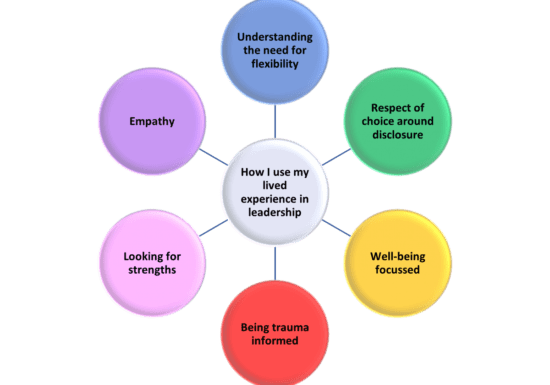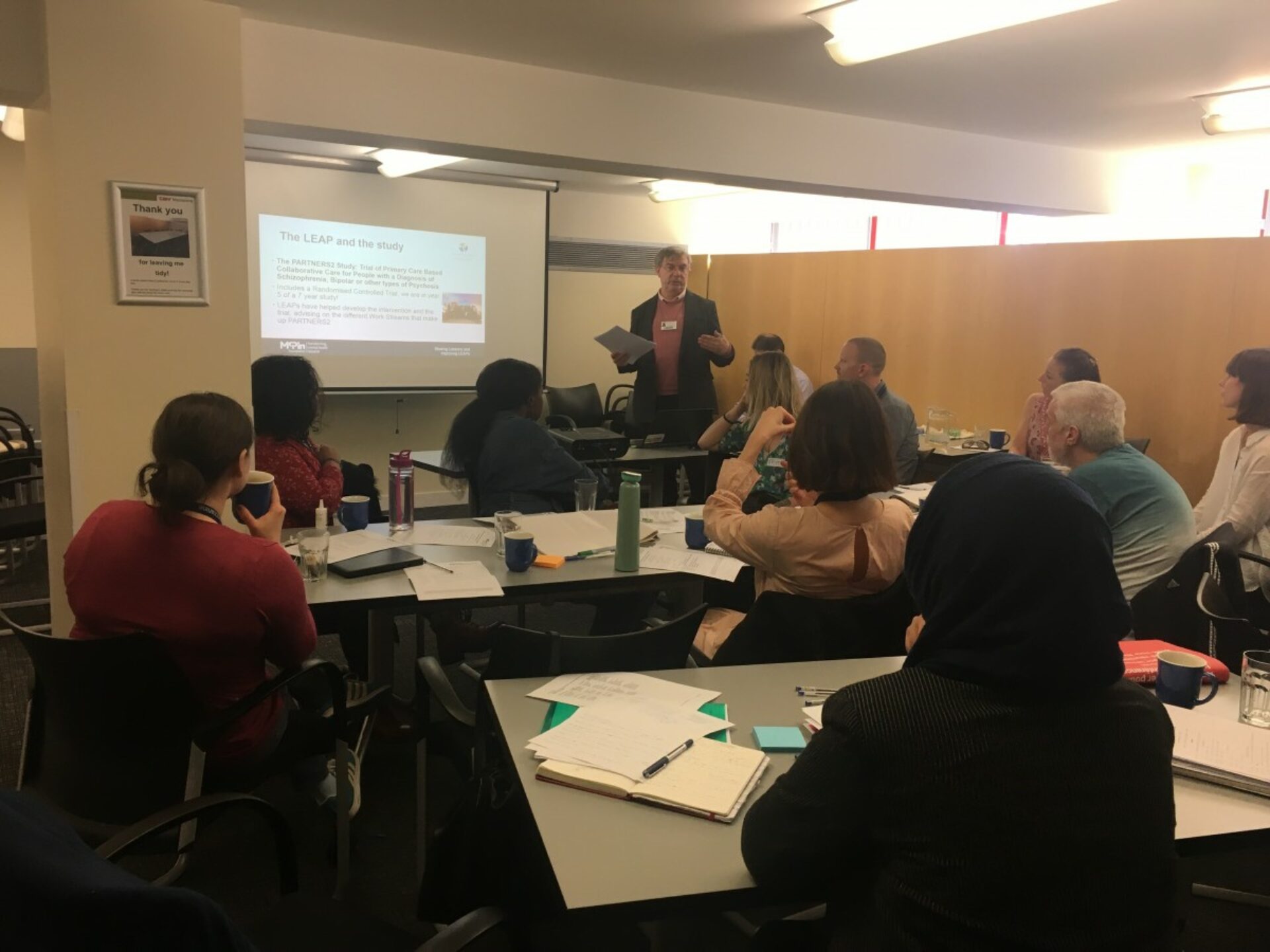Leadership comes in many forms, from growing organically in groups through to formalised leadership positions with descriptions of role and responsibility.
But, what does it mean to be a lived experience ‘leader’ and how does lived experience impact leadership?
Moreover, are systems ready to recognise and provide support for those with lived experience to become leaders of change, particularly in the realm of mental health in a post Covid-19 context?
Tanya MacKay
Many people are starting to explore these issues (see Byrne & Wykes, 2020; Jones, Byrne & Carr, 2020; NSUN, 2020; Sandhu, 2019) suggesting now is the time to explore how we embed lived experience leadership into all aspects of mental health, from service delivery to research.
This must be done with consideration. As others have pointed out, I agree that lived experience leadership cannot be a commodification of people’s expertise, or tokenistic roles that equate to a form of virtue signalling. Recognition of the unique knowledge people bring must be more holistic than a job title or description.
Being in a leadership role must allow people to draw on their lived experience in a variety of ways, within their own boundaries of disclosure, underpinned by good support structures that acknowledge the emotional work needed to be in a lived experience role of any type.
But the push for lived experience leadership is essential: for mental health services and research to see real change in how lived experience is perceived we must truly embed using lived experience in all roles, including leadership. In addition, it must be recognised as something holistic that can enhance all of the work leaders do, including the supervision and support of others.
Finding a balance
I work at McPin as a Research Manager, guiding and supporting – leading – teams of researchers. I have worked as a researcher, a project manager and a social worker, supporting people in their work in research, policy development and service provision.
Being a lived experience ‘leader’ has not always been an easy role and organisational support has been key in allowing me to draw on my experiences. I am constantly working out how to balance the best use of my lived experience and supporting others to use their lived experience.
I often feel torn between a need to be actively championing lived experience expertise, not wanting my story to be used as a leveraging tool, and a desire to work for change in ‘softer’ ways. All of this is often an emotionally taxing activity.
I am always working concurrently on how to create space for others to lead, role modelling lived experience leadership, challenging systems and advocating for research methods that embed lived experience. Furthermore, this has to be done whilst I try to support my teams and my own wellbeing, ensure we keep up with project responsibilities and work with external systems that do not always see value in the lived experience approach in research.
Despite the challenges, I do believe lived experience has enhanced my ability as both a line manager and project manager, particularly in trying my best to support my team with their own needs.
I think working from a position of openness, recognition that everyone experiences challenges and that each person brings their own strengths, has all been built from my own lived experience.
I believe that in emphasising self-care, seeing mistakes as opportunities rather than deficits, encouraging creative problem solving and proactive self-learning whilst helping staff grow, I am actively working towards a style of leading that challenges the leadership I have previously experienced in the contexts of working as a mental health professional, a service user and a carer.

Intersectional identities
Other writers have raised the issue of substituting designated lived experience posts with roles for people with professional backgrounds who also have a lived experience. This is an important issue to raise, as in doing so we may risk professionalising lived experience roles.
My own experience has been that whilst some people have clearly delineated identities, for others their lived experience forms one part of an intersectional identity and consequently, their learned and lived experience skills cannot be separated.
My own professional identity cannot and has not ever been untangled from my lived experience. My chosen social work career path was in essence fuelled by my own journey, and my social work career informed how I use my lived experience.
We need to support people in being respected as a professional, in all fields (including research), on multiple intersectional levels. We need to see lived experience as a strength that enhances our work, rather than a risk to professional ability or reputation.
I have seen that often those leaders who are open about their lived experience can be limited by a glass ceiling, that lived experience expertise is seen as only suitable up to a specific level of responsibility. Systems are not structured in a way that allows lived experience leaders to truly lead, but rather they are there to advise, consult and participate.
My lived experience leadership is often subtle, and rarely requires me to disclose my experiences. But I believe through my interactions with individuals and institutions I am shifting perceptions about different ways people can use lived experience.
Reimagining and rethinking
If we can reimagine what using lived experience looks like, or means, and see it as a one aspect of a range of skills and abilities people bring to the table, we can start to change this.
My role at McPin has given me the opportunity to grow in a leadership role, with opportunity to further progress. I am able to both lead through championing lived experience expertise in all aspects of mental health from research to service delivery, and lead through my day to day work and interactions. I am encouraged to draw on my lived experience in how I support the team, plan projects and write in ways that reflect my level of comfort.
My lived experience leadership is often subtle, and rarely requires me to disclose my experiences. But I believe through my interactions with individuals and institutions I am shifting perceptions about different ways people can use lived experience leadership.
I feel that as we move into a time where mental health support will be critical, we have to not only elevate the voice of lived experience in leadership, but also provide the correct support frameworks for them to do so – from wellbeing through to skills building.
We need to look at how best to elevate the voice of lived experience to rethink not only what workplaces look like for people with mental health issues moving forwards, but also mental health services.
Tanya MacKay is a Research Manager at McPin
